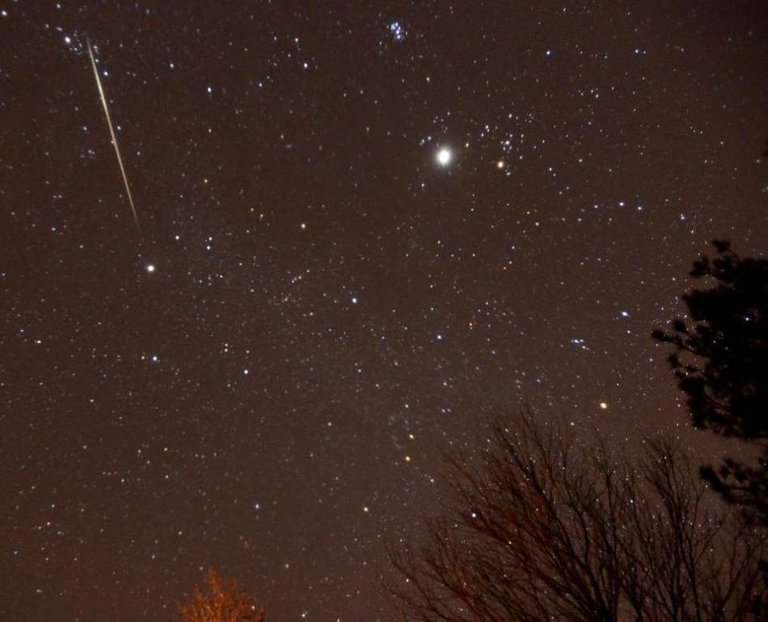The longest and darkest nights of the year are upon us, and this makes great viewing for the annual Geminid meteor shower, which peaks this week. Last year a super moon greatly interfered with the viewing of this event because the light was so bright it overshadowed the meteors.
This year, we shouldn’t have that problem. The moon will be only 19 percent full on Wednesday night and won’t rise until about 2:30 a.m., so there’s plenty of viewing time earlier in the night. Past Geminid meteor showers have displayed 100 to 200 meteors per hour.
So what’s the best place to watch the Geminid meteor shower? Many of us live in areas with light pollution, so the meteor rate you might see should be cut in at least half. Nevertheless, some of the brightest meteors may even shine through the city lights of Boston.
However, I would try to get somewhere dark. If you dress warmly you could start looking for a spot around 9 p.m., and the show will continue up until 5 a.m.. The weather looks like it will cooperate, with just a few clouds around the area but not enough to really affect the viewing.
One of the interesting things about this meteor shower is that the meteors radiate from fairly high above the horizon early in the evening. This matters because in other meteor showers, you have to wait until the predawn hours to really get a good view, but with the Geminid meteor shower the radiant point will be almost overhead by 9 p.m. and certainly by midnight.
A meteor streaked across the sky over Alabama in 2012 during the Geminid meteor shower.© File 2012/Associated Press A meteor streaked across the sky over Alabama in 2012 during the Geminid meteor shower.
While the radiant point is where the meteors appear to originate, it’s not necessary to find it since they streak across the sky.
Meteors are tiny pieces of space debris that burn upon coming into our atmosphere. Most of these are about the size of a grain of sand and originate as debris from comets or asteroids.
The Geminid meteor shower is so named because the meteors appear to radiate from the constellation Gemini. You don’t have to find it, but it can be fun to look for it. In order to find this constellation, look for Orion, which is easily identified by its three-star belt. The Gemini constellation is to the right of that and above it.
The Geminid meteor shower is associated with an asteroid, the near-earth object 3200 Phaethon. While the meteor show will be best on Wednesday night, you can see meteors on any clear night several days before and after the peak.
Congratulations @yuvarajvenkatesh! You have completed some achievement on Steemit and have been rewarded with new badge(s) :
Click on any badge to view your own Board of Honor on SteemitBoard.
For more information about SteemitBoard, click here
If you no longer want to receive notifications, reply to this comment with the word
STOP